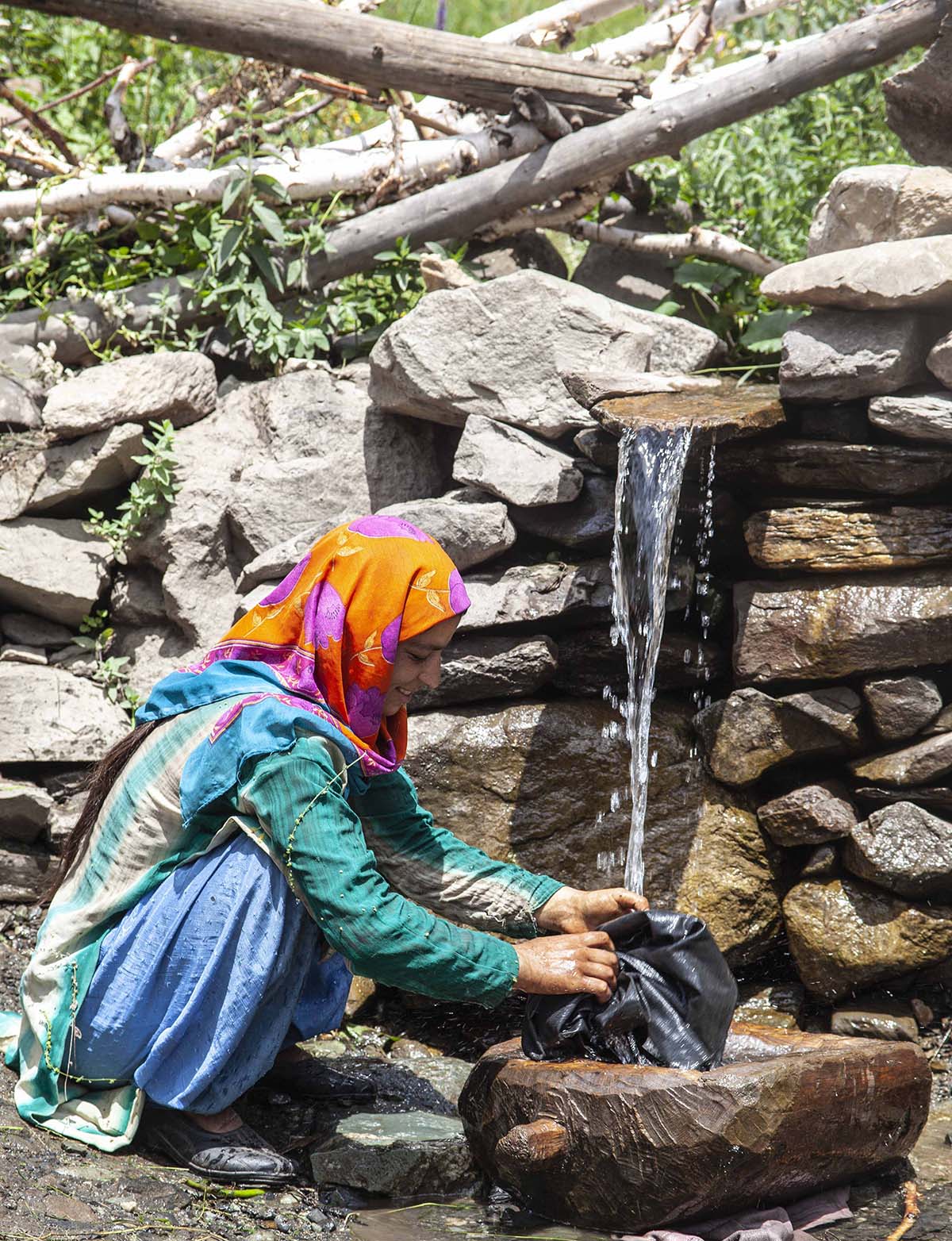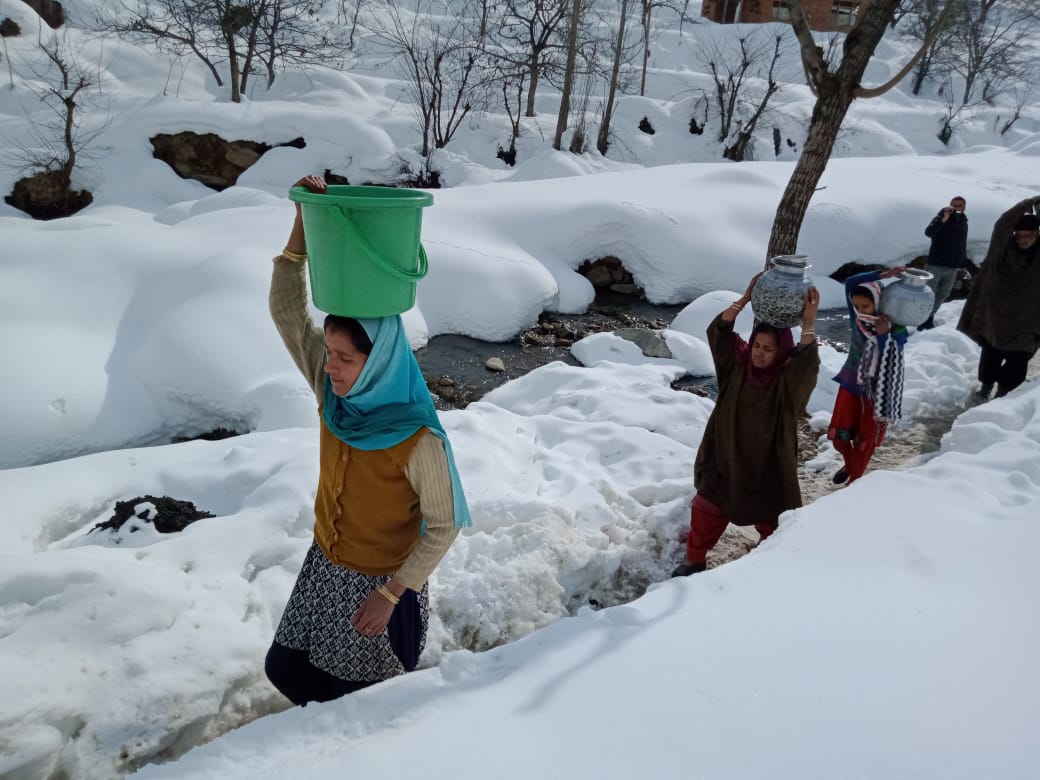by Ruhail Maqbool Sheikh
Surface and groundwater in Kashmir have been subjected to frequent pollution because of industrial and agricultural activity. Apart from that, residential trash generated by a big population, particularly in places like Srinagar, causes significant environmental and water resource harm.

We don’t value things unless it is lost. Close your eyes and imagine your life without water. The answer is we cannot survive even for a day without water.
Over the past few years a rapid growth in populations, modernization, growing industrialization, and expanding agriculture has pushed up the demand for water in the urban as well as rural areas. Human demands are increasing day by day but the natural resources are in a limited quantity.
Efforts have been made to collect water by building dams and reservoirs, practising rainwater harvesting, and digging wells. Some countries have also tried to recycle and desalinate salty water to make it fit for drinking or washing. Water conservation has become a major need of the hour. The idea of groundwater recharging by harvesting rainwater is gaining importance in many parts of the world and is being practised successfully.
Water conservation is the practice of efficiently preserving, controlling, and managing water resources. It has become an essential practice in every part of the world, even in regions where water appears to be enough.It is the most practical and environment-friendly approach to lessen our need for water. Likewise, using less water puts less weight on our sewage treatment facilities, which require an ample amount of energy for heating water.
Pollution
Water is life. We have multiple water sources in Kashmir including rivers, springs, groundwater etc. These sources have been used for hundreds of years, but is threatened by overdevelopment, global warming, lack of awareness and pollution. Water is essential to all living beings and is a significant natural resource. In the past, the water quality in Jammu and Kashmir was practically perfect and devoid of pollution. As a result of anthropogenic activity, the water quality in many places is now potentially dangerous to human consumption and health.
Surface and groundwater in Kashmir have been subjected to frequent pollution because of industrial and agricultural activity. Apart from that, residential trash generated by a big population, particularly in places like Srinagar, causes significant environmental and water resource harm. Sewage organics and nutrients combine with water bodies, resulting in a microbial infestation. Pathogenic disease-causing organisms are important in terms of health since they can cause a variety of diseases if they are not adequately treated. As a result of environmental and human health problems, water quality monitoring is becoming increasingly important.

Not Infinite Resource
Many believe that our water supply is infinite. However, our supply is quite the opposite. It is important that we must not pollute our water as many do not realize just how important and scarce water is. Water conservation includes refraining from water pollution. This requires the use of strategies that includes reducing wastage, preventing damaging water quality, and improving water management. The population must save the water available today and provide a sufficient supply for the coming years. The quality of potable water is determined by water sources such as rivers, wells, and lakes, among others. Pathogens, harmful metals, chemical compounds such as pesticides, herbicides, fertilizers, and other commercial operations and industrial waste can all pollute drinking water.
Furthermore, marketplaces have been shown to be a major source of water pollution. Most plastic products, polythene bags, garbage, and other items come from marketplaces and are then thrown directly or indirectly into rivers or water bodies, causing pollution.
Lack of Awareness
The major problem concerning the drinking water space is not only the severe water contamination threat and depletion of water sources but also the lack of awareness among people. We all need to form good habits now regarding water conservation. It will not get any better as the population increases and as global warming increases with it. Large corporations have a larger impact on water conservation than individuals, but it’s up to all of us to do our part. Better water conservation and management has economic benefits and help protect the environment. The more water you use, the more you pay for water and sewer service on a municipal water and sewer system. Excessive water use can overload both individual septic systems and municipal sewer systems, thereby resulting in untreated sewage contamination of freshwater supplies. Water conservation can extend the useful life of both community and individual household sewer systems.
Ground Water
Excessive withdrawals of groundwater can lead to saltwater intrusion, a subtle environmental impact with long-lasting effects. These areas are usually associated with large population centres or agriculture, where water use is high. Agriculture is our most essential industry, but it is also our largest consumer of fresh water.
Water conservation and management will become bigger issues for agriculture and metropolitan areas as they compete for limited freshwater resources in the future.
Less water usage means more saving and saving water means saving energy. Now the point is how we can save water, the answer is very simple and easy.
To ensure we do not take this blessing for granted, we all can–

Stay Aware: Recognize that both the quantity and quality of water around us is dependent on us, how we live, and how we use water and energy. Remember to keep water quality and quantity healthy. By keeping riparian and wetland areas healthy, these systems will continue to provide necessary “services”.
Keep Water Clean: Water is a sink – everything flows to it – in our every action on our lands, from our air, in our yards, in our homes, and in our industries. Remember that everything flows to or seeps into our water sources.
Work at Conserving Water: Every time you use water at home or at work, think of creative ways you can save this most precious resource.
Make sure that you always turn off your tap quickly after washing dishes etc.
Make sure that your pipelines don’t have any leakage that would cause water to run.
Avoid activities that require access to water usage.
Use water sense fixtures which include shower heads and faucets rated for lower water usage.
Use rain barrels if you live in a high rain area. These barrels collect rainwater and store it in a safe place. This water can be used for washing, cleaning, bathing etc.

Use modern washing machines that require less water usage.
Don’t use drinking water for construction, washing vehicles etc.
Don’t throw waste on water bodies. Throwing waste means polluting water and polluting water bodies leads to water scarcity.
Spread awareness on water conservation.
Protect groundwater resources.
Treat wastewater
Last but not least “save blue live green” think before you let it drip.
(The author has masters in Environmental and Occupational Health and Analytical Chemistry, besides a management degree in Human Resource Management. He works for Jal Shaki Department in Jammu and Kashmir. Views are personal.)















